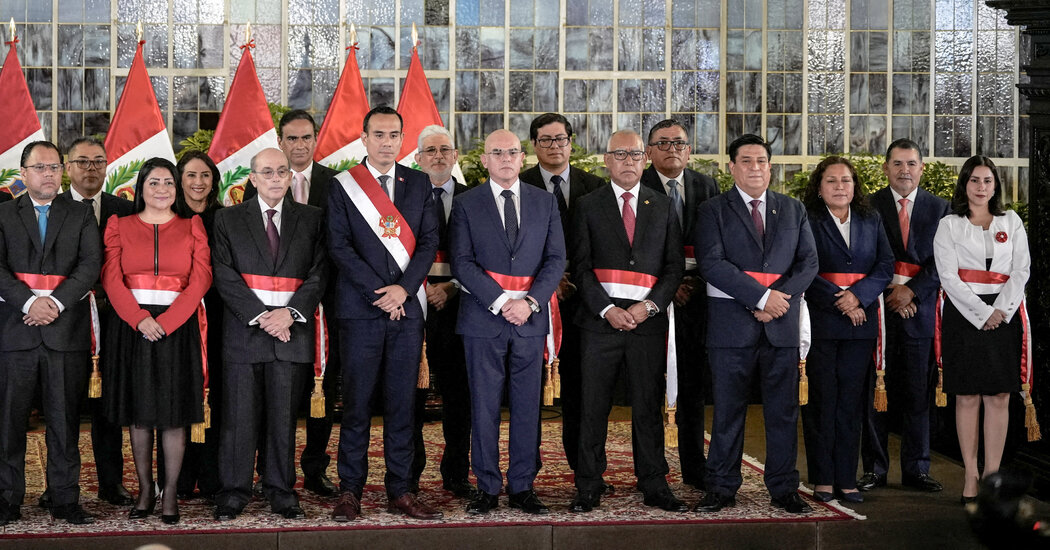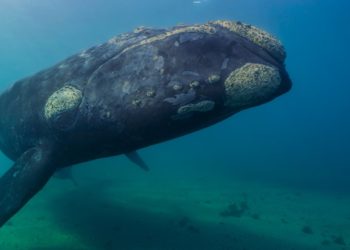President Dina Boluarte this month became the third Peruvian leader to be impeached in five years. With an approval rating hovering around 3 percent, she had become, by some estimates, one of the most loathed elected heads of state in the world.
After her ouster, you would think the country would be celebrating. Ms. Boluarte, who was thrust into office in December 2022 after her predecessor was impeached, was widely blamed by Peruvians for failing to prevent state security forces’ killing of protesters and later a mounting wave of gang violence, extortions and murders. The swearing-in of José Jerí, who was next in line as president of Congress, as interim president, with general elections scheduled for April, would seem to signal that a reset could be around the corner.
But in Peru, who occupies the presidency matters less and less. For years, the president has governed largely on paper. Real decision-making power has shifted to a diffuse coalition of political power brokers, many of whom have been accused of having ties to corruption networks. These include Keiko Fujimori, the daughter of Peru’s last autocrat and a likely contender for the presidency; a prominent party leader, José Luna Gálvez; and a well-known lawmaker, Waldemar Cerrón, among several others. Peruvians know that a new president doesn’t necessarily mean a change in who rules: even after Ms. Boluarte’s impeachment, many continued to protest the government’s failure to curb organized crime.
In Peru, there is no elected autocrat or populist strongman. Mr. Jerí is the seventh president to hold office since 2018. But many of the basic freedoms we associate with functional democracies are fading away: the freedom to work without being extorted, to denounce crime or official corruption without retaliation or even to walk down the street without fear of gangs.
For those used to associating democratic erosion with strongmen such as Russia’s Vladimir Putin or Venezuela’s Nicolás Maduro, this might sound strange. Western liberalism has long held that the main threat to political and personal freedom comes from unconstrained rulers. As long as there are constraints on state power — working checks and balances — freedom is supposed to flourish. How does freedom disappear without one ruler or ruling party taking it away?
The recent history of Peru and several other Latin American democracies including Brazil, Colombia and Mexico shows there is another, even more insidious way freedom can die for large parts of society: when the state is unable or unwilling to constrain predatory private powers — narco-traffickers, illegal gold miners, human smugglers, corruption rackets — and the officials and politicians who go into business with them.
In a book I am writing on their rise over the past decade in Latin America, I call these forces parallel powers. Parallel because they aren’t fully inside the state (like dictatorships’ security forces who deliver the knock on the door) or fully outside it, either. For these powers to thrive as they do, state officials must at least tolerate them. In some parts of Latin America, the authorities embrace them so fully that the line between officialdom and crime has faded away.
These Latin American democracies, Peru included, are not like the dictatorships in Venezuela, Nicaragua, or Cuba, where repressive regimes cling to power by engineering elections and locking up dissidents. The horrors of these systems are well-known. The rest of Latin America has more to fear from something like the system taking hold in Peru today: a patchwork of forces backed by a diffuse coalition of political and financial enablers.
Over the past several years, Peru’s parallel powers have carved the country up into a patchwork of fiefdoms — ones in which Indigenous leaders, environmentalists, journalists and labor organizers who resist are increasingly harassed and killed as unscrupulously and with almost as much impunity as in many dictatorships.
A handful of Peru’s most politically powerful families have enabled this. In recent years, they have formed a loose, on-again, off-again coalition to pass a spate of what many Peruvians derisively but accurately call “pro-crime laws,” primarily to quash their own criminal investigations. These laws curb prosecutors’ investigative tools, shield illegal miners and loggers and effectively cater to Peru’s illegal economies, allowing them to run on overdrive. The laws don’t create a police state, but rather one in which gangs, mafias and local bosses de facto make and enforce their own private laws.
It’s a profitable arrangement for those on top. Peru’s illegal gold mines — cleaved from Amazonian rainforest, riverbeds or mountainsides, leaching toxic chemicals — yield billions of dollars in gold annually. Peru produces more coca, the raw material for cocaine, than any country besides Colombia. One in three Peruvians reports personally knowing a victim of extortion.
These same political power brokers promise draconian crackdowns on gangs, but do nothing to curb the illicit economies on which they thrive. Meanwhile, they have modified Peru’s Constitution dozens of times, subordinating other branches of government to the legislature, which has become the perfect vehicle for advancing their shared interests.
This type of misrule is stealthier than dictatorship — and potentially sturdier. Peru’s political power brokers can point out that the machinery of democracy is still running and competitive elections will come soon. They can deflect blame onto one another. Even if the elections wipe out their political protectors, Peru’s illegal economies will likely recruit new ones. Robust global demand for Latin America’s leading illegal commodities — cocaine and gold — means they will never want for cash.
It’s harder, too, to know how to resist this kind of takeover. Opponents of autocrats or repressive ruling parties have one clear goal: topple the dictator. This can help them put aside differences and organize. But the disorganized majority that opposes Peru’s current drift needs to do something even more difficult. They must build power in both the state and civil society to curb predation. If Peruvians can identify and rally behind a candidate who shares this vision, coming elections may open a narrow window for change.
Even then, Peru and Latin America will still come up against the same conundrum: What do you do when freedom dies without a dictator?
Will Freeman is a fellow for Latin America studies at the Council on Foreign Relations.
The Times is committed to publishing a diversity of letters to the editor. We’d like to hear what you think about this or any of our articles. Here are some tips. And here’s our email: [email protected].
Follow the New York Times Opinion section on Facebook, Instagram, TikTok, Bluesky, WhatsApp and Threads.
The post You Can Kill a Democracy Without a Dictator appeared first on New York Times.




